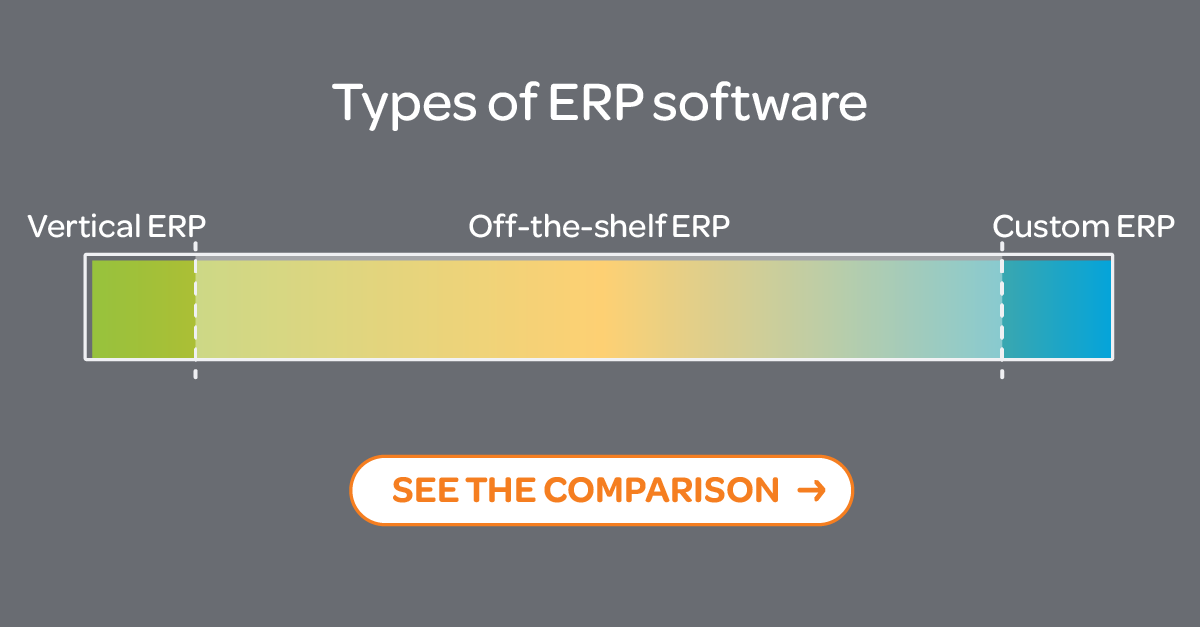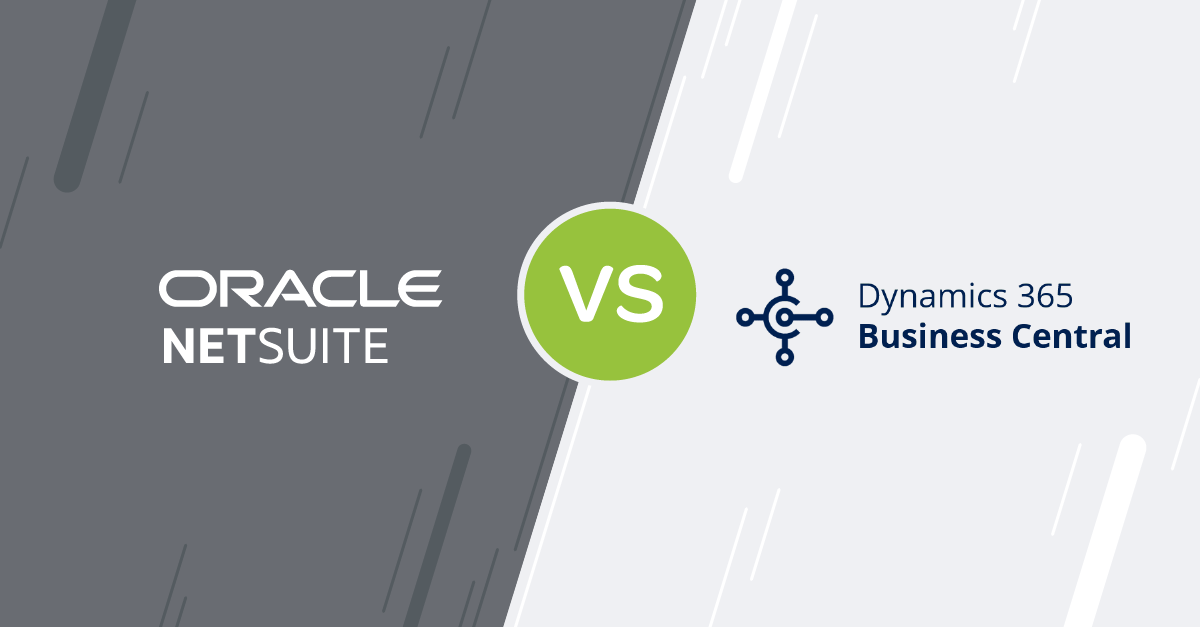Blog
Share this
What Types of ERP Systems are There and Which is Best for My SME?

by Jalene Ippolito on July 23, 2020
When you first start evaluating ERP solutions, you’ll find that there are tons of options. More than just the options for ERP vendors, you’ll find there are different types of ERP systems to choose from. As with anything, there are pros and cons to every choice. So, our goal here is to highlight the differences between the three main types of ERP systems and dig into the pros and cons of each. Determining the type of ERP you want is the first box to tick on your ERP requirements checklist – the document that outlines your functional needs.
Off-the-shelf ERP software
Off-the-shelf ERP solutions are also sometimes referred to as generalist ERP, as they can adapt to processes across industries. They come with a built-in feature set that includes your basic ERP functionality, and often some more advanced capability. This is a great option for many companies, as it gives them out-of-the-box functionality plus the flexibility to tailor the solution to your needs.
Considerations for the off-the-shelf ERP:
- They tend to be stable products with established support channels.
- They’re often the most cost-effective option.
- You may have to change some of your processes to fit the product. While some people view this is a con, it may not necessarily be a bad thing. Remember that your ERP system should take you beyond where you are today, so processes need to be changed for the better.
- Because these are established products, they have large user communities that you can learn from. Think of best practices, innovative approaches to solving business challenges with technology, etc.
- The inherent flexibility of these systems allows you to easily integrate with best-of-breed applications for specific needs.
Vertical ERP for specific industries
Vertical ERP solutions are developed for and used solely by companies in a given industry. These are highly customized to the industry vertical, supporting clearly defined business processes unique to that sector.
Considerations for vertical ERP solutions:
- Vendors tend to have a deep knowledge of industry best practices, regulations and trends.
- They can be faster to implement because they’re already highly customized to industry needs, reducing the need to tailor the system to your processes.
- Software vendors tend to be start-ups or smaller companies focused on a niche (construction, retail, financial services, etc.). Their size can put limits on their support capabilities and there’s increased risk if they aren’t a long-established, stable provider.
- They typically won’t have as much flexibility to adapt to unique requirements or changing needs as your business models change over time. This can be a critical limitation if you have plans to significantly grow or expand your business over time.
- You may not have the level of visibility and control into your financials with a vertical solution, as the primary focus is on industry-specific functionality.
- The ability to integrate with other software can be limited. Be sure to ask about integration capabilities and APIs.
Custom-built ERP
When it comes to custom ERP, there’s a bit of a sliding scale. A truly custom-built solution is built from the ground up based specifically on your needs. The other option is to take an off-the-shelf ERP product (like SAP Business One or NetSuite) and tailor it to fit your unique business needs, workflows and processes. As a general rule, the more customization, the bigger the price tag. But you’ll have an ERP solution that is truly best fit for your business.
Considerations for custom ERP:
- You’ll have a system developed to fit your business like a glove, based on your needs, processes and workflows. You won’t have to adjust the way you work to fit the system.
- A fully custom system will be the most expensive option. You’ll need a bigger budget for high up-front development fees and the long-term maintenance costs can be higher. If you want to customize an off-the-shelf system, the costs will drop significantly and still give you the tailored fit you’re looking for.
- It will take longer to implement a custom ERP solution, as there’s significant development time involved.
- Selecting an ERP partner is always an important consideration, but it’s even more critical with a custom-built solution. First, you want to ensure they have the development expertise to create a quality solution. But you also want to find a reliable partner that’s a good fit – someone you can do business with for a long time. You’ll have less flexibility to change providers because the developer knows how the system was built.
How to choose the right type of ERP for your small or mid-size business
There is no one single option that will be best for every company. It all comes down to your business needs, what you want to achieve with ERP and your growth plans – where you see your business in 10 years. That being said, an off-the-shelf ERP solution like SAP Business One or NetSuite offers the best of all three options. Many companies can implement out-of-the-box features and see big results. For industry-specific needs, you can use applications designed to work with your chosen ERP, or you can easily integrate with other best-of-breed point solutions. On top of all that, most modern ERP systems offer the flexibility to tailor your system (add custom fields, alerts, reports, etc.), add simple customizations to workflows, or develop more robust custom modules or apps as part of a cohesive solution. Keep in mind that your ability to tailor your will be closely tied to the capabilities of your ERP partner. This is an area where we excel - check out some of our made to measure ERP solutions to see what's possible.

Ultimately, it comes down to flexibility and scalability. An off-the-shelf solution gives you industry-specific functionality without limiting your ability to adapt as business needs change over time. And it offers the ability to tailor or customize your system to whatever degree you’re comfortable with, minus the high cost of a fully custom system.
The next step is to confirm whether ERP is the right move for your business right now. To truly gauge your readiness, take our ERP Need Assessment. This quick and insightful tool will help you identify gaps in your current operations and provide clarity on whether your business is ready for the transformative impact of ERP. Don’t just guess—get a clear picture of what’s next for your business.
Share this
Stay in the Know!
Join other SMEs who receive our monthly ERP insights, tips and best practices.
You may also like

ERP Funding for Canadian Businesses

Should You Work with a NetSuite Implementation Partner or Go Direct?



